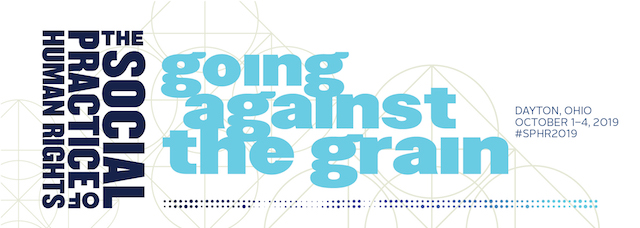The White Supremacy Aesthetic: A Racial Capitalist Intervention on Instagram
Abstract
Social media is a ubiquitous aspect of the modern world. The globalization of communication has transformed the ways in which we interact as human beings. However, it is crucial to acknowledge that this technology is not neutral ground. Social media are platforms upon which relationships of power are negotiated. They also exist within structures of power. Where Twitter engages users in writing short texts and Facebook allows users to post or share almost anything, Instagram, owned by Facebook, is the social media platform which focuses primarily on images, photographs and other visuals. This format has powerful implications when one considers the impact of curating or performing aesthetics within societies constructed and controlled by racialization. Situated within contemporary analysis of the critical theory of social media, Jordyn Sheldon responds to an omission of intersectional and critical race analysis. She interrogates social media, specifically Instagram, through a racial capitalist lens in order to expose how this platform utilizes democratic racism to authorize white supremacy.
To consider how Instagram reinforces white supremacy, her analysis is multi-dimensional. She begins by analyzing the algorithms and data collection processes of Instagram using a racial capitalist framework. Then, conducts a qualitative thematic analysis of user data to expose how Instagram, in cooperation with it’s users, employ democratic racism through its reporting system. Tracing through commonly used hashtags on anti-racist accounts online, Sheldon flags which posts are most frequently reported and by whom they are posted. She uses this data to identify patterns of white supremacy and surveillance.
Ultimately, she exposes the racial and political implications of corporate owned social media, reveals mechanisms of resistance and strives to generate a commitment to the potential for anti-racist social media platforms.
The White Supremacy Aesthetic: A Racial Capitalist Intervention on Instagram
New Media and Imagery
Social media is a ubiquitous aspect of the modern world. The globalization of communication has transformed the ways in which we interact as human beings. However, it is crucial to acknowledge that this technology is not neutral ground. Social media are platforms upon which relationships of power are negotiated. They also exist within structures of power. Where Twitter engages users in writing short texts and Facebook allows users to post or share almost anything, Instagram, owned by Facebook, is the social media platform which focuses primarily on images, photographs and other visuals. This format has powerful implications when one considers the impact of curating or performing aesthetics within societies constructed and controlled by racialization. Situated within contemporary analysis of the critical theory of social media, Jordyn Sheldon responds to an omission of intersectional and critical race analysis. She interrogates social media, specifically Instagram, through a racial capitalist lens in order to expose how this platform utilizes democratic racism to authorize white supremacy.
To consider how Instagram reinforces white supremacy, her analysis is multi-dimensional. She begins by analyzing the algorithms and data collection processes of Instagram using a racial capitalist framework. Then, conducts a qualitative thematic analysis of user data to expose how Instagram, in cooperation with it’s users, employ democratic racism through its reporting system. Tracing through commonly used hashtags on anti-racist accounts online, Sheldon flags which posts are most frequently reported and by whom they are posted. She uses this data to identify patterns of white supremacy and surveillance.
Ultimately, she exposes the racial and political implications of corporate owned social media, reveals mechanisms of resistance and strives to generate a commitment to the potential for anti-racist social media platforms.



